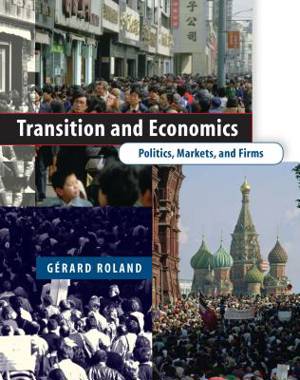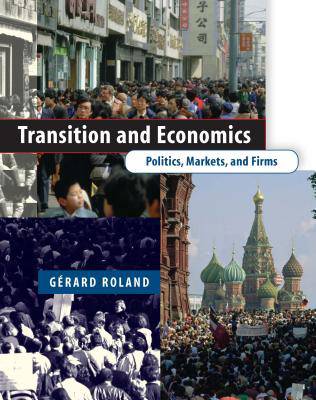
- Afhalen na 1 uur in een winkel met voorraad
- Gratis thuislevering in België vanaf € 30
- Ruim aanbod met 7 miljoen producten
- Afhalen na 1 uur in een winkel met voorraad
- Gratis thuislevering in België vanaf € 30
- Ruim aanbod met 7 miljoen producten
Omschrijving
The transition from socialism to capitalism in former socialist economies is one of the main economic events of the twentieth century. Not only does it affect the lives of approximately 1.65 billion people, but it is contributing to a shift in emphasis in economics from standard price and monetary theory to contracting and its institutional environment. Economic research in transition shows not only that institutions matter but also how their evolution toward higher efficiency depends on initial conditions and on sustained political support.Unlike early policy literature on transition economics, which focused on the so-called Washington consensus, this book provides an overview of current research, analyzing issues raised by transition for which economic theorists and policy makers had no ready answers. It shows how research on transition contributes to our understanding of capitalism as an economic system and of the dynamics of large-scale institutional change.The book is divided into three parts. The first part looks at how large-scale reforms are decided dynamically through the political process. The second part looks at the general equilibrium and macroeconomic effects of liberalization in economies without preexisting markets. The third part looks at the economic behavior of firms in the transition from state to private ownership and compares the effects of privatization, restructuring, and financial reform. Although focused on transition economics, the discussions are relevant to topics in political economics, development, public economics, corporate finance, and micro- and macroeconomics.
Specificaties
Betrokkenen
- Auteur(s):
- Uitgeverij:
Inhoud
- Aantal bladzijden:
- 400
- Taal:
- Engels
- Reeks:
- Reeksnummer:
- nr. 2
Eigenschappen
- Productcode (EAN):
- 9780262681483
- Verschijningsdatum:
- 30/01/2004
- Uitvoering:
- Paperback
- Formaat:
- Trade paperback (VS)
- Afmetingen:
- 189 mm x 220 mm
- Gewicht:
- 712 g

Alleen bij Standaard Boekhandel
Beoordelingen
We publiceren alleen reviews die voldoen aan de voorwaarden voor reviews. Bekijk onze voorwaarden voor reviews.











